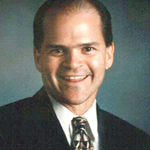Want to Read Better? Get Outside and Play
If you are looking for ways to help your children learn, Dr. Rick Graebe of the Children’s Vision and Learning Center in Versailles offers some simple advice: “Send them out to play.”
Really? Play? Yes. And Dr. Graebe’s advice is backed by solid research showing that the decline of unstructured playtime in the past half-century has harmed American children.
According to Howard Chudacoff’s book, “Children at Play: An American History,” the time kids spend playing and exploring on their own has declined since the 1960s.
At the same time, researchers have seen a decrease in the average scores on tests of creative thinking, creating a generation of children who are less emotionally expressive, less talkative, less verbally expressive, less imaginative, less unconventional and less perceptive.
Why do kids need play?
Dr. Graebe, a behavioral optometrist, explains that one of the major areas of development that children are working on when they play is visual-spatial skills – the way the brain coordinates what the eyes see.
Children with poor visual-spatial skills tend to be clumsy and have inferior hand-eye coordination.
These visual-spatial skills are essential when children learn to read. Children need to move their eyes precisely in order to read words efficiently.
Outside play time also helps children develop visualization skills – the ability to make and manipulate pictures in your mind.
Not all children develop this skill equally. If a child can’t form a picture in his head as he reads a story then “reading is just words on a page,” Dr. Graebe said.
He likens it to reading a passage in French when you don’t know the language.
Dr. Graebe and his staff at the Children’s Vision and Learning Center have a fun, interactive program to help children who struggle with visualization.
Children are shown concrete pictures and asked to turn those pictures into words. Then they take words and turn them back into pictures in their minds.
“The strength of our program is one-on-one therapy,” Dr. Graebe said. “Our therapists can determine where a child is at with their current skills and then adapt a program to their level.”
Meanwhile, Dr. Graebe’s prescription for all children is less time in structured, adult-controlled activities and more outside play time.

